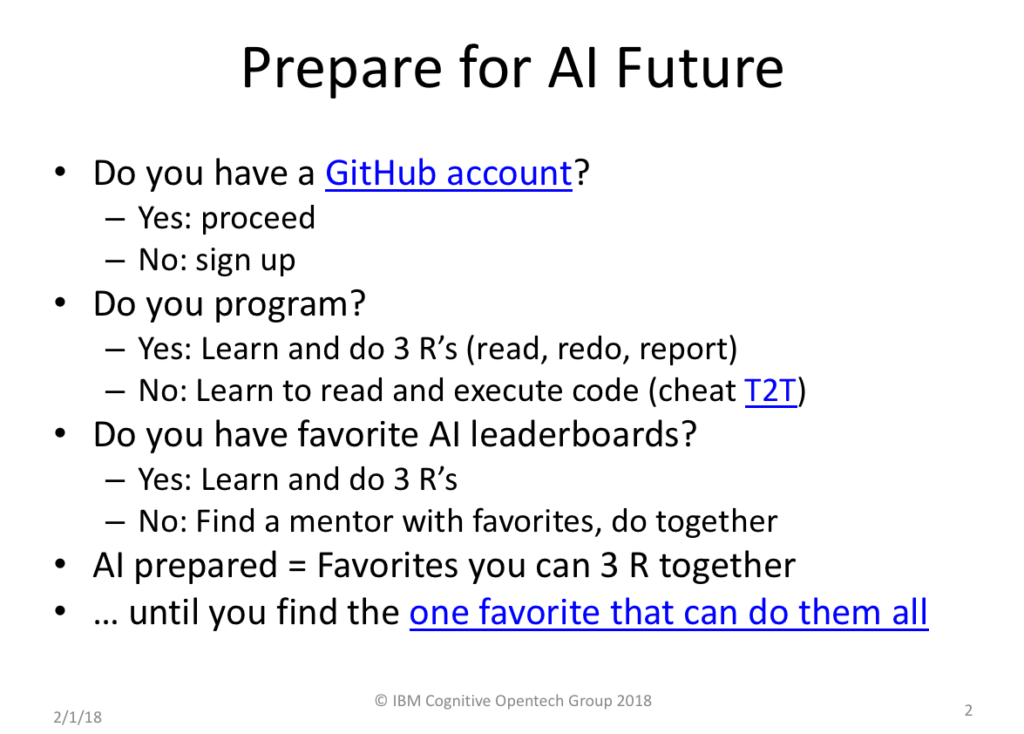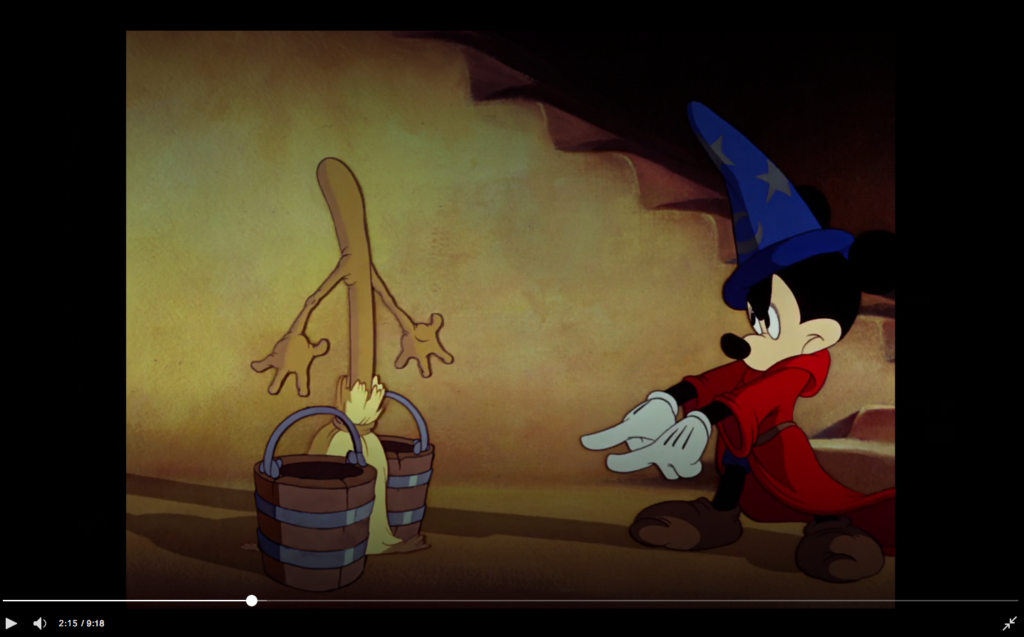Since I started leading IBM’s open source AI efforts, I am frequently asked how best to prepare for our future with AI. While I have a long presentation here, I decided to try to distill it to one slide:

Recently, one member of the audience signed up for Github, during the talk!!! Got to give him credit where credit is due – and taking a great first step in preparing for the future with AI.

I have *not yet* found a good way to explain GitHub to people…. especially the future of GitHub, when people do not need to know how to program to use it to access AI super-powers. However, watching this Disney Fantasia clip with Mickey Mouse called Sorcerer’s Apprentice Fantasia is a good hint at what is coming.

Programmers are the conjurers today. However, find a friend who knows about open source AI on GitHub, even if you are not a programmer. Find a friend who knows about Tensor2Tensor (T2T), and learn to read and execute the iPython Notebook code. Start exploring low code environments, like the one offered by Mendix as well. In the coming years, non-programmers will be able to access AI super-powers on GitHub. And follow the progress of AI via the leaderboards – see this presentation here.
Question: What should students, parents, and faculty know about actionable knowledge/code/GitHub?
Possible answer:
Wikipedia is a source of information that can be converted to knowledge.
Code (software) is a form of actionable knowledge that can be converted to value.
Every student today knows Wikipedia, and for tomorrow they need to get a GitHub account and learn to partner with a friend to do cool things with code -see: https://service-science.info/archives/4834
WHy is it important that all students have GitHub accounts and learn to search for projects related to their interests?
For example – Poetry: https://github.com/ChaosPKU/Poetry – A RNN model to automatically generate Chinese ancient poems with the input of start words. The idea is inspired by Weiyi Zheng’s tangshi-rnn and Andrej Karpathy’s Char-RNN.
For example – Exoplanets: https://github.com/pinardy/exoplanets-data Discover the number of exo-planets and details of the planets given a set of data
For example – Viscous flows: https://github.com/Intro-Quantitative-Geology/Viscous-flows Materials related to laboratory exercise 5 on viscous flow of rock and ice
Code is actionable knowledge – value comes from actionable knowledge – which is why students need to get a GitHub account and learn to search for projects relevant to their interests.
How to help me: You can help me by getting more people to think about GitHub, Kaggle, and open source AI. Specifically, ask people to imagine a day when they can ask their smartphone to take any on-line course, and their smartphone can take the online course and pass the course (Student-Mode). Next, the AI system can switch into Tutor-Mode and help the user pass the same online course. Boosting skills of people is what IBM calls “Cognitive Computing” – and this is a form of “Intelligence Augmentation” – or AI for IA. To understand the AI system in Student-Mode better – watch this TED Talk: https://www.ted.com/talks/noriko_arai_can_a_robot_pass_a_university_entrance_exam and now imagine a world where AI systems program as well or better than people – then read this: https://service-science.info/archives/4834 The person/organization that builds the first AI system that can take and pass most on-line courses will become quite famous in the history of IA for humanity.
The day when an AI system can program as well or better than people, and help people learn more is something that I have been preparing for for quite some time – see the book MARCEL: Simulating the Novice Programmer: https://www.amazon.ca/MARCEL-Simulating-Programmer-James-Spohrer/dp/0893917656